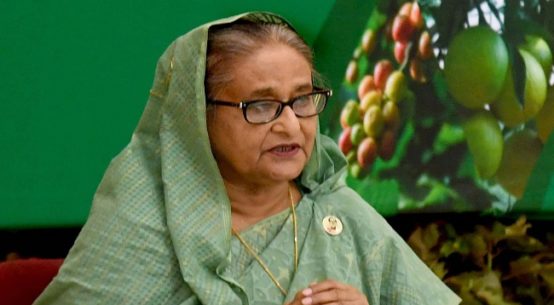Earlier this month, Prime Minister Sheikh Hasina made a remark that assumes significance given the rueful undertone that her statement conveyed. This was a follow-up of her statement last month. She is reported to have said, “Some people are always trying to regroup and oust the government.” That despite all the developments that have taken place in the last decade under her watch. She also alluded to the effort of some political parties to seek help from foreigners, “hoping that someone abroad will hold their hands and put them on the throne.” She had reportedly said in end April that a group of political parties had joined hands with the BNP-Jamaat alliance to try to oust her government. And she wondered what the fault of the Awami League government was, and why they wanted to oust it. Here is my tuppenny worth of opinion.
Let’s pose a counterquestion: Why, indeed, would anyone try to “oust” a political party that is well ensconced in power, and has so much to show on the economic front? In this regard, we would like to believe that the parties that the prime minister named and the people she mentioned in her remarks are well established and recognised political parties and people with long political credentials. Hence, the term “oust” that denotes a more sinister intention than a legal political process of replacing a party in power through elections does not apply here. “Unseat,” perhaps, may be more appropriate here. We are totally opposed to supra-political means of changing government and would like to believe that all legal political parties—which all opposition parties are—also subscribe to this principled view. Anything contrary must be curbed ruthlessly. The last such intervention was that by Gen Moin in the political process in 2008. The Awami League continues to enjoy the fruits of that intervention. Some of the above-mentioned changes were welcomed with the comment of the Awami League leader that “we are not unhappy,” and in 2008, the party assured that all the ordinances of the caretaker government would be validated if the party was elected to office, nay “power.” And indeed, most of those were.
For all latest news, follow The Daily Star’s Google News channel.
The economic story is astounding, but who will answer for the thousands of crores of taka that has been siphoned off from the country? Despite the not-so-sound condition of the banking sector, more and more private banks were allowed to open—an example of crony capitalism. And most of those who deliberately violated banking rules are yet to be brought to justice.
The less said about shrinking political space to the opposition, the better. Thus, when the ruling party taunts the main opposition party for the lack of its presence on the streets or losing political relevance, they know one of the main reasons why. Even a gathering of politicians within the walls of a house is considered clandestine and, in some cases, forced to break up.

